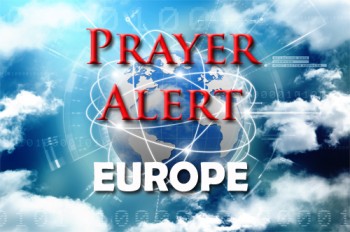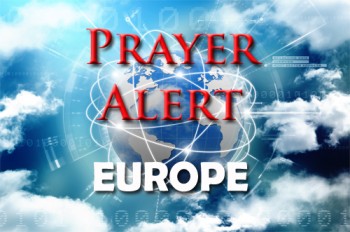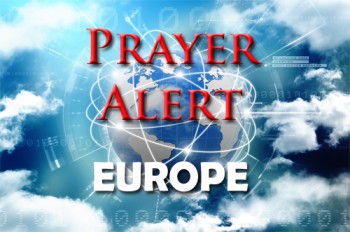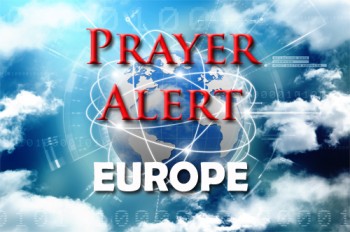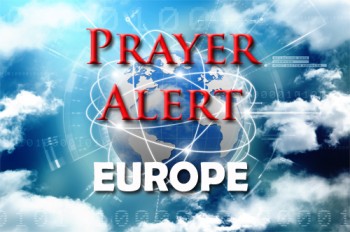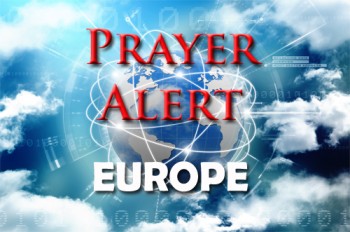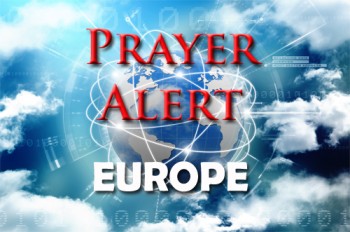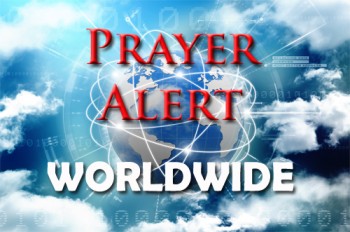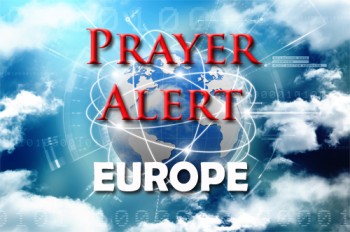Displaying items by tag: Europe
Trump calls EU brutal
The US president called Brussels ‘a brutal trading partner’ and criticised the EU's tough treatment of Britain after it gave the UK a further extension at the special Brexit summit. He finished his critique on a philosophical note, ‘Sometimes in life you have to let people breathe before it all comes back to bite you!’ Brexit talks remain locked, and Brussels has put more pressure on the UK to shift its position. Before the deadlock, former Brexit secretary Dominic Raab told the BBC that allowing a delay weakens the UK’s hand in the talks. Meanwhile many economists believe that as the EU has suffered monetary stagnation and enormous waves of migration, Brussels does not want to lose the UK, its second largest economy and financial centre.
Romania: Christianity v witchcraft
Parts of Romania are hotbeds of the occult and witchcraft, as well as home to large groups of unreached Roma gypsies and Romanians. Witchcraft is a respected (and feared) profession: even the president is known to wear purple on certain days to ward off evil. The witches are known as the vrăjitoare, and their practice is government-regulated. In 2011, a new law required them to pay a 16% income tax, the same as any other self-employed Romanian citizen. The response was twofold. Some supported the tax, arguing that it established witchcraft as a verifiable profession, while others threw poisonous mandrake plants into the Danube River. Meanwhile missionaries are being sent to Romania. Greater Europe Mission (GEM) reported recently that its disciple-makers invited 130 youth from areas rife with witchcraft to a week-long camp, and between 60 and 70 people gave their lives to Christ. See
Poland: Harry Potter books burnt
Priests at a Catholic parish in northern Poland have burnt books, including the Harry Potter series, and other items that their owners said had evil forces. Images from the burning at Gdansk’s Mother of Church parish on Sunday were posted on Facebook by a Catholic foundation that uses unconventional ways of religious work. In the pictures, flames are consuming an African wooden mask, figurines of elephants, and books on personality and magic, as well as those by J K Rowling, all brought in by parishioners. A priest and altar boys watched the book-burning. The foundation said the book-burning was intended to alert parishioners to bad influences which it says come from magic and the occult. Comments under the post condemned the action, recalling that it also happened in Nazi Germany before World War II.
Malta: archbishop’s warning to new president
Archbishop Charles Scicluna delivered the message at the mass on George Vella’s swearing-in as Malta’s tenth president. Scicluna made the point that ‘the economic prosperity of a country is on solid foundations when its leaders embrace wisdom and righteousness’. He said the reputation of Malta’s strength and growth depends on whether the values of integrity, justice and solidarity are made a political priority. ‘If the first or only thing we seek is gain or profits, democracy becomes a kerdocracy - a society based on a rush for profit - and from there on it is easy to slide into a kleptocracy, a society where power is concentrated in the hands of the greediest.’ On the same day, the Council of Europe published its report on the effectiveness of Malta’s prevention of corruption, and called for more robust action in the government and police. See https://theshiftnews.com/2019/04/03/council-of-europe-calls-for-robust-action-against-government-corruption-in-malta/
State of Europe Forum
The recent Dutch provincial elections revealed a disturbing degree of provincialism and xenophobia; the leader of the winning party had dedicated his university dissertation to the French extreme nationalist Jean-Marie Le Pen! The upcoming State of Europe Forum in Bucharest will bring together Pentecostal, Evangelical, Protestant, Catholic and Orthodox clergy and lay people from across Europe to explore commonalities and differences in perspectives on the future of Europe. If we all accept that the Jesus story is the defining story of Europe, how do we bring his Lordship (see Ephesians 2: 4,5) to bear on our current challenges of populism, terrorism, corruption, cyberwarfare, nationalism, trafficking, migration, weakened democracy, xenophobia, and much more? God’s people of hope need to point in a different direction. We need to recover the story of Jesus as having ‘broken down every wall’ between race, gender and status, as the defining story of Europe.
Malta: ship 'hijacked by migrants'
Maltese armed forces have boarded a merchant vessel that was allegedly hijacked by migrants after they were rescued off the coast of Libya. Five of the migrants have now been arrested, accused of forcing the captain of the oil tanker to cede control ‘through coercive action’ and ordering it to alter course for Italy. There were 108 migrants,77 men, 19 women and 12 children. A patrol vessel stopped the tanker from entering Maltese waters, then a special forces unit boarded it and handed over control of the ship to the captain. Matteo Salvini, Italy’s hardline interior minister, called the asylum seekers ‘pirates’. Italy’s ports are closed to rescued migrants. Human rights groups said they were escaping Libyan detention camps where they are beaten, raped and even sold as slaves, and should be directed towards a safe port.
Praying for Christian revival
It was recently said that Europe, in its diversity, has the commission of the Creator to seek unity, otherwise it breaks into an infinite number of dwarfs fighting each other. Wikipedia states that religion in Europe has been a major influence on today's society, art, culture, philosophy and law, and the largest religion in Europe is Christianity. But irreligion and practical secularisation are strong. In the 2011 census 96% of Kosovo residents and 58% of Albania residents were Muslim. Modern revival movements of other religions include Heathenism, Rodnovery, Romuva, Druidism, and Wicca. Smaller Indian religions linked to Buddhism are also found in their largest groups in Britain, France, and Kalmykia, Russia. Pray for the various Christian mission agencies commissioned by God to reach and revive faith in the one Almighty God, His Son Jesus Christ, and the power of the Holy Spirit. See
North Macedonia: a challenging April election
Macedonia has launched a renaming of the country’s institutions after a deal with Greece that changed its name to North Macedonia. The deal came into effect on 12 February, after ratification by Greece’s parliament. Following the name change of this former Yugoslav republic, voters will elect a new president. Political rancour and ethnic division among political forces remain rife, yet many hope that offers of accession talks by the EU will end political dissension and stalemate. North Macedonia’s main opposition party, VMRO-DPMNE, nominated law professor Gordana Siljanovska-Davkova as its candidate. He is a harsh opponent of the deal with Greece and of the adoption of the law that made Albanian the second official language in the country. The first round of the election will be on 21 April. The governing SDSM party still has to decide on its candidate. See
Global: terrorism - 1
Following New Zealand’s terror attack, there have been six recorded incidents in just seven days. In Israel two rockets launched from Gaza terrorised residents around Tel Aviv; explosions and sirens were heard throughout the region. Palestinian terror group Islamic Jihad claimed responsibility. Two Israelis were killed in another terror attack, and two days later a shooting attack on an Israeli bus traumatised passengers. In the Netherlands a gunman opened fire inside a tram, killing three and injuring others. In Kashmir 44 soldiers were killed and dozens injured by Pakistan terrorists. In Stanwell, UK, a far-right terrorist was arrested for attempted murder and racially aggravated public order. American experts say white nationalist threats are growing. Prayer leader Brian Mills says, ‘Satan undermines truth, is full of self-importance, is vehemently anti-Jewish and anti-Christian, seeks to interrupt our communication with God, and is a terrorist! We see a spirit of violence, intrinsic within Islam, being turned outwards.’
People here live in both countries
Young people in Northern Ireland have grown up with a unique ability to identity as British, Irish, or both, thanks to the peace agreement that ended decades of conflict. But after Brexit, some people think the border between Northern Ireland and the Republic of Ireland could again become a scene of violence, and there is uncertainty about what rights Irish and British passport holders will have. Pray for the questions around people’s identities and citizenships to be resolved. Pray for peace to cover all areas threatened with fear and violence. To watch a short documentary about the north/south divide issues discussed by young people, click the ‘More’ button.
